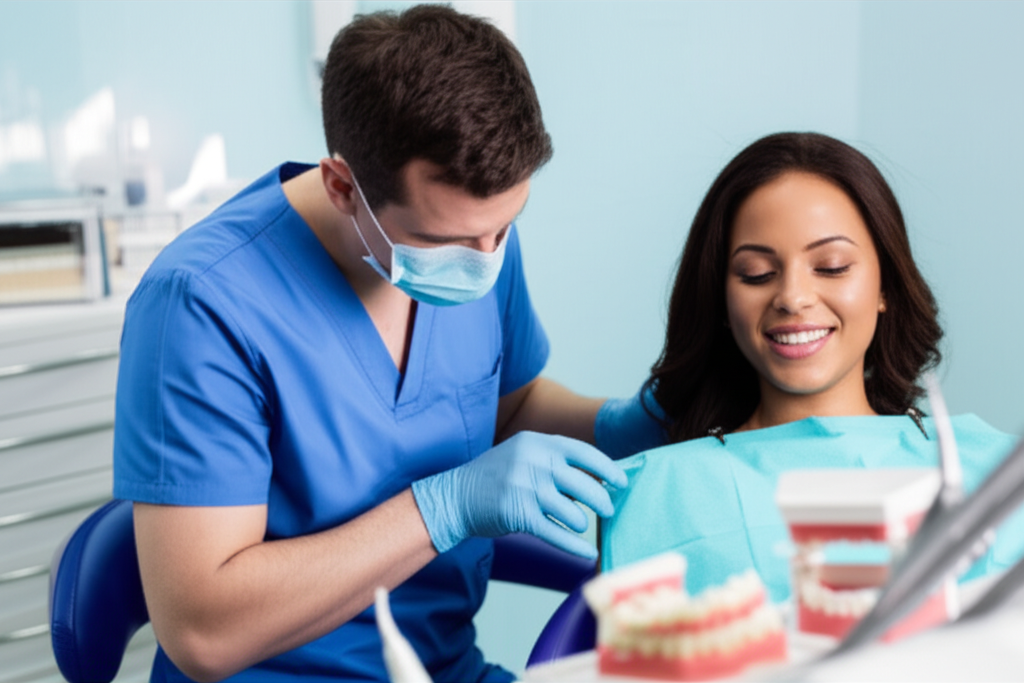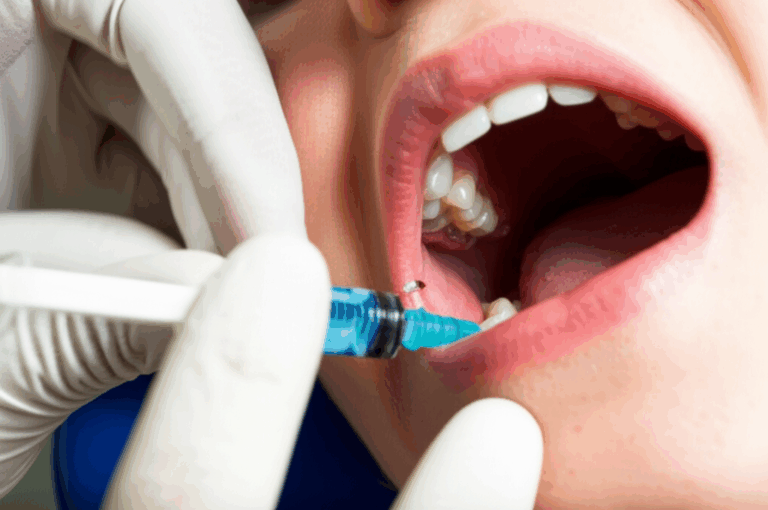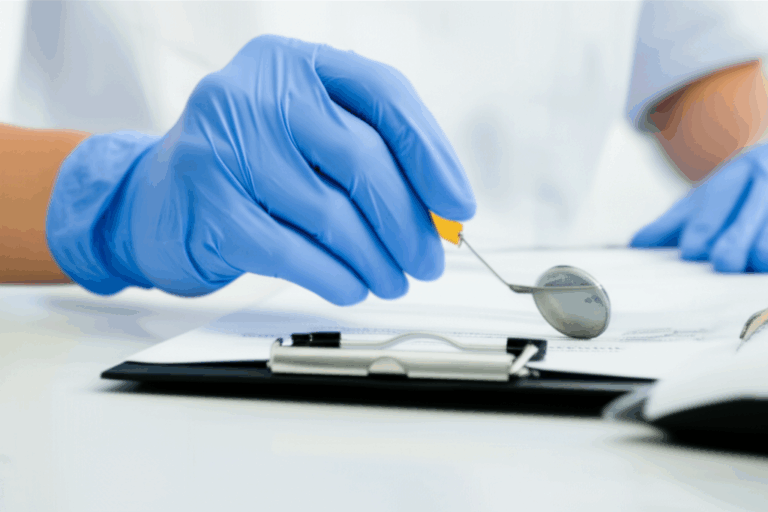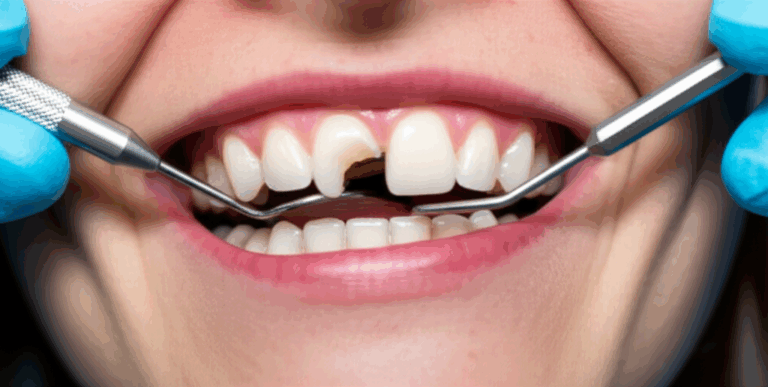
The Comprehensive Roles of a Dentist: Beyond Just Fillings and Cleanings
Dentists do a lot more than just ask you to “open wide.” In this article, I’ll show you all the different jobs a dentist does—how they take care of your teeth, your smile, and even your health in general. If you want to know why going to the dentist matters, how they help you avoid pain, and why those dental visits are important, keep reading. You’ll be surprised at how much dentists really do!
Table of Contents
What Does a Dentist Really Do?
Most people think a dentist just fills holes in teeth, cleans teeth, or puts on braces. But really, a dentist is a trusted health worker trained to look after your mouth, teeth, and gums—and by doing this, they also look after the rest of your body.
Dentists don’t just fix things when they go wrong. They spend most of their time trying to keep problems from happening at all. According to the American Dental Association, dentists do everything from checking and finding problems, to fixing, replacing, or making teeth look better. They check for small holes, look for cancer, treat gum problems, and help kids and adults keep a happy, healthy smile.
If you break a tooth, the dentist is the one to save the day. If you want a brighter smile for a big day, the dentist can help. Their skills go from simple checks to tough surgeries—and a big part of their job is showing you how to take care of your teeth at home.
So next time you’re in the dentist’s chair, remember: you’re with someone who does a whole lot more than just count your teeth.
Why Is Oral Health Important for Your Body?
Here’s the deal: your mouth is the door to your body. When your teeth and gums are healthy, you can eat, talk, and smile without worry. What’s really surprising is that a healthy mouth helps stop bigger health problems too.
Did you know gum problems are linked to heart problems, diabetes, and even early births? When dentists look after your mouth, they help lower the chances of more serious health worries. Going to your dentist often isn’t just about teeth—it’s about staying healthy everywhere.
I remember a patient who often skipped cleanings. She thought, “It’s just a tooth!” But later, she found out her sore gums were making her sick in other ways. After she got treated, she felt better all over—even her mood changed!
How Does a Dentist Find and Fix Problems?
Dentists are like detectives—they’re always looking for clues. When you sit in the dentist’s chair, they look at your mouth in a bunch of ways:
- Looking: They check for holes, swelling, or anything odd.
- Dental Tools: X-rays or little cameras help them find hidden problems. Some holes and broken teeth only show up this way.
- Touching: Dentists might tap or press your gums or jaw to check for sore spots or swelling.
- Asking Questions: They’ll ask if anything hurts, if you’ve noticed any bleeding, or if you feel any changes when brushing.
With all this, dentists can spot problems early. That way, things get fixed before they start to hurt or cost a lot to fix. About 85% of adults have had at least one filling in their life—showing how dentists often fix little problems before they become big ones.
Here’s a quick table showing what dentists look at and how:
| What Dentists Check | How They Check |
|---|---|
| Cavities and Tooth Decay | Look, X-rays |
| Gum Disease | Gum measuring, X-rays, look |
| Oral Cancer | Feel for lumps, look |
| Infection | Look, ask if you hurt, X-rays |
| Tooth Alignment | Look at your bite, use soft molds |
What Are Preventive Dental Care and How Can It Help You?
You’ve probably heard, “Better to stop problems than fix them later.” That’s what prevention’s all about! Dentists want to keep you out of trouble right from the start.
What are some examples of preventive dental care?
- Professional Teeth Cleaning: Only a dentist or hygienist can clean off all the sticky stuff (plaque) and hard stuff (tartar) you can’t brush away at home. This stops gum problems and holes in your teeth.
- Fluoride Treatments: Sometimes dentists put on a special sticky stuff with extra fluoride to help make your teeth stronger.
- Sealants: These are thin covers that go on the top of your back teeth to keep holes from starting.
- Custom Mouthguards: For sports or if you grind your teeth, a dentist can make a soft guard that fits just for you.
- Teaching Patients: Dentists spend a lot of time showing you the right way to brush, floss, and eat for healthy teeth.
I always tell my patients: It’s much easier to stop small problems before they get big. If you take care, you spend less time in the dentist’s chair—and more time having fun.
When Does a Dentist Restore Teeth?
Even when you brush and floss, sometimes a hole shows up or a tooth breaks. That’s where fixing teeth comes in. Dentists are good at putting teeth back together so you can eat, smile, and talk again.
Common ways dentists fix teeth:
- Fillings: If you get a hole, the dentist cleans it out and fills it with a special material. Fillings can be silver, white, or even ceramic.
- Crowns: If your tooth is too broken for a filling, the dentist might put a special cap over it called a crown.
- Bridges: Lose a tooth? A bridge fills the empty space and is held by the teeth on each side.
- Root Canal: If a tooth gets infected deep down, a root canal can save it—no need to pull it!
- Tooth Pulling: Sometimes a tooth is just too broken to fix and needs to come out.
Dentists bring your mouth back to working order. Fixing teeth is kind of like patching up what’s broken, so you’re back to normal again.
If you want to see how repairs are made these days, check out modern crown and bridge techniques and see how lost or broken teeth can be fixed up like new.
How Do Dentists Make Your Smile Look Better?
It’s not just about teeth working right—it’s about feeling good when you smile! Cosmetic dentistry is a big part of what dentists do. If you want whiter, straighter, or better-looking teeth, they can help.
Ways dentists can help your smile:
- Teeth Whitening: Dentists can safely make your smile brighter.
- Bonding & Veneers: For chipped, stained, or crooked teeth, dentists can cover or reshape them. Veneers are very thin covers that go on the front of the tooth.
- Simple Braces or Aligners: Some dentists can help straighten teeth with clear, gentle trays.
I remember a girl who always covered her mouth when she laughed. After she got her teeth fixed and straightened, she loved to smile big. That’s the magic of cosmetic dentistry.
Want to see how veneers are made and put on? Learn more from this veneer lab resource.
What About Dental Emergencies?
Tooth pain can happen fast. Maybe you fall, get hit, or bite something hard. Emergencies are scary—but dentists are ready.
Dentists help in emergencies by:
- Stopping the Pain: If you have sudden tooth pain or a bad infection, a dentist knows how to help quick.
- Fixing Broken Teeth: If a tooth breaks or falls out, quick care can save it!
- Repairing Broken Fillings or Crowns: If a crown or filling cracks, dentists can fix it so you can eat and smile again.
In emergencies, dentists sometimes work with high-tech dental labs, such as china dental lab, that make crowns, bridges, or new teeth super fast. Moving quick can save a tooth!
Who Are the Dental Specialists?
Not all dentists do the same jobs. There are lots of special dentist jobs—these are experts who do extra training for special problems.
- Orthodontists: Fix crooked teeth or jaws using braces or other tools.
- Oral Surgeons: Do surgeries, like pulling wisdom teeth or fixing broken jaws.
- Periodontists: Help with gum disease and problems with the bones that hold teeth.
- Endodontists: Experts at root canals—save teeth that might otherwise get pulled.
- Pediatric Dentists: Take care of kids’ teeth as they grow.
- Prosthodontists: Specialists at replacing missing teeth using dentures, bridges, or implants.
- Public Health Dentists: Teach whole communities about healthy teeth and take care of people who need it most.
Dentists sometimes send patients to a specialist if the problem is tricky or extra serious. For example, getting a dental implant often needs a special implant dental laboratory and a trained specialist.
What Else Does a Dentist Do Besides Treating Teeth?
Dentists do more than just fix teeth—they also run an office, look after their team, and make sure the place is safe for everyone.
Other things dentists do:
- Teach Patients: Dentists show people how to brush, floss, and eat for healthy teeth. They know if you understand, you’ll do better.
- Run the Office: A busy dental office is a team! Dentists are the leaders, keeping everyone working well together.
- Follow Rules: Dentists make sure everything is clean and safe, and follow health laws to protect your information.
- Keep Learning: New things about teeth keep coming out, so dentists always keep learning too!
- Work with Other Health Workers: Sometimes a problem in your mouth is part of a bigger health trouble. Dentists talk with doctors to help your whole body.
You might not notice most of these jobs during your visit, but they’re super important for safe and good dental care today.
How Do Dentists Help the Community?
Dentists also do a lot outside their offices. Public health dentists teach in schools, help kids and older people, and set up special clinics for people who need help.
Some dentists work on studies and help write new safety rules for care. Without dentists, lots of people wouldn’t get help—especially in places where dentists are hard to find.
Dentists help by using new tools and tech to make care faster and better. For example, a digital dental lab can help make crowns or braces that fit just right—even in one day sometimes.
FAQs: Common Questions About Dentists
Q: How often should I see the dentist?
A: Usually twice a year for a check and cleaning—more if you have tooth or gum problems.
Q: What if I’m scared of the dentist?
A: Dentists know that people get nervous. They can talk you through it, be gentle, or use calming medicines if you need.
Q: My teeth feel okay—do I still need to go?
A: Yes! Most tooth troubles don’t hurt until they’re serious. Dentists find and fix them early—before you even notice.
Q: What is a dental lab and how does it help?
A: Dental labs, like a china dental lab, work with dentists to make crowns, dentures, bridges, and more—using special stuff and new tools so everything fits right.
Key Points to Remember
- Dentists do much more than just fill teeth or pull them out.
- Stopping problems before they start is goal number one.
- Fixing teeth is just one part—fillings, crowns, bridges, and more.
- Dentists also help your smile look great, not just work right.
- Emergencies need quick help—a dentist knows what to do.
- Special dentists handle really tough cases.
- Dentists also teach, manage, and help their whole town.
- With the help of good dental labs, dentists give you the best results.
- Your mouth is the start of your whole health. Taking care of it every day keeps you feeling good.
Look after your smile and learn what dentists really do—don’t wait till there’s a problem to visit!
References:
- American Dental Association: www.ada.org
- Centers for Disease Control and Prevention: www.cdc.gov
- World Health Organization: www.who.int
- Academy of Osseointegration
- National Institute of Dental and Craniofacial Research: www.nidcr.nih.gov
For expert dental repairs and lab support, discover the power of a digital dental lab. For cosmetic fixes, see what a veneer lab can do. If you need long-lasting replacements, check out a trusted implant dental laboratory.








